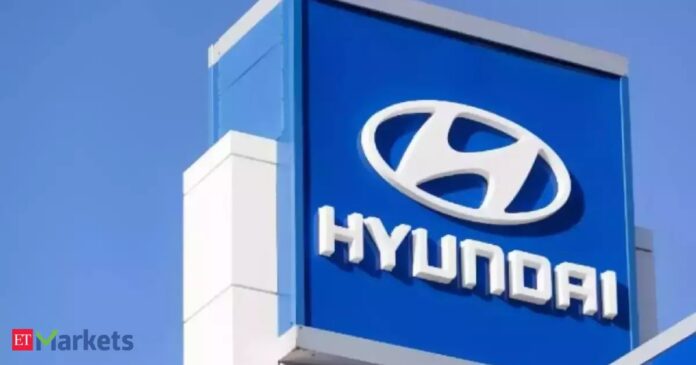Hyundai Motor India: Navigating Challenges and Opportunities in the Passenger Vehicle Market
Hyundai Motor India (HMI), the country’s second-largest passenger vehicle (PV) manufacturer, is at a pivotal juncture as it plans to raise up to Rs 27,870 crore through an offer for sale (OFS). This strategic move comes as the South Korean parent company, Hyundai Motor Company (HMC), aims to reduce its stake from 100% to 82.5%. Regulatory requirements necessitate further reductions to 75% or lower in the future, which could have implications for HMI’s stock price and market perception.
Market Dynamics and Competitive Landscape
The Indian automotive market is characterized by intense competition, with HMI facing significant challenges from its larger rival, Maruti Suzuki India. Over the past five years, both Hyundai and Maruti have seen their market shares erode, with HMI’s share declining from 17.6% in FY20 to 14.6% in FY24. This trend raises concerns about HMI’s ability to maintain its competitive edge, especially as it may need to offer higher customer discounts to retain market share, potentially impacting profitability.
Moreover, the valuation of HMI’s upcoming IPO presents a challenge. The price-earnings (P/E) multiple of up to 26.7 for FY24 does not offer much comfort when compared to Maruti’s P/E of 29.8, which boasts nearly three times the market share and significantly higher sales volume. Investors may find themselves weighing the risks against the potential rewards as they consider HMI’s stock.
Business Operations and Growth Prospects
Incorporated in 1996, HMI has established itself as a full-range manufacturer of passenger vehicles, producing hatchbacks, sedans, and SUVs across various powertrains. The company operates a state-of-the-art manufacturing plant in Chennai, with a current capacity of 824,000 units. To further bolster its production capabilities, HMI is in the process of setting up an additional plant in Talegaon, Maharashtra, which, once operational, will increase the total capacity to 1,074,000 units over the next three to four years.
In FY24, HMI reported an 8% year-on-year increase in PV sales, totaling 777,876 units. The breakdown of sales reveals a strong reliance on internal combustion engine (ICE) and CNG powertrains, which accounted for 89.2% and 10.6% of sales, respectively, while electric vehicles (EVs) made up a mere 0.2%. Despite the current low contribution from EVs, HMI has ambitious plans for several new model launches in the coming quarters, focusing on both ICE and EV platforms. This diversification could position HMI favorably in a rapidly evolving market.
Financial Performance and Future Outlook
HMI’s financial performance has shown promising growth, with revenue increasing by 21.4% annually from FY22 to FY24, reaching Rs 69,829 crore. Net profit also saw a substantial rise of 44.5%, amounting to Rs 6,060 crore. The operating margin before depreciation and amortization (EBITDA margin) improved to 13.1%, matching the expansion seen in peer Maruti’s EBITDA margin during the same period.
While these figures indicate a robust financial health, the company must navigate the challenges posed by a competitive market and changing consumer preferences. The gradual decline in market share highlights the need for strategic initiatives to enhance brand loyalty and customer retention.
Conclusion: A Balancing Act for Investors
As HMI prepares for its OFS and contemplates its future in the Indian automotive landscape, investors face a balancing act. On one hand, the company’s plans for new model launches and capacity expansion present opportunities for growth. On the other hand, the competitive pressures and the need for regulatory compliance may weigh heavily on its stock performance.
Risk-taking investors might find the upcoming IPO an attractive proposition, while those with a more conservative approach may prefer to observe the stock price trends post-IPO before making any commitments. As HMI continues to navigate the complexities of the Indian market, its ability to adapt and innovate will be crucial in determining its long-term success.

